Food access can be a huge challenge for families in WNC’s hard-to-reach rural areas — especially during summer break when children are not receiving school lunch assistance.
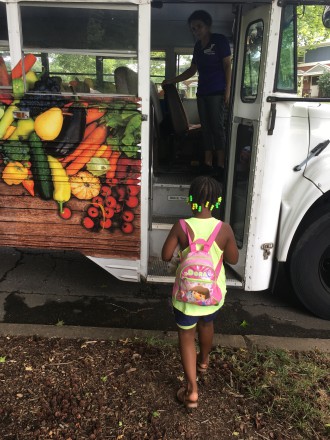

Food access can be a huge challenge for families in WNC’s hard-to-reach rural areas — especially during summer break when children are not receiving school lunch assistance.
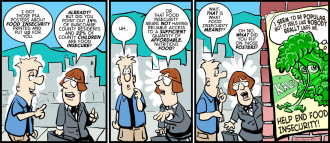
Asheville, NC
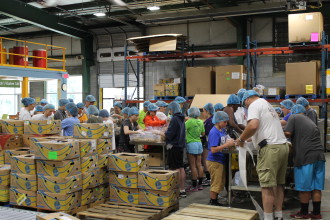
Charitable organizations, food pantries and community gardens are working hard to combat hunger in WNC. And at the heart of those efforts, are hundreds of committed volunteers.
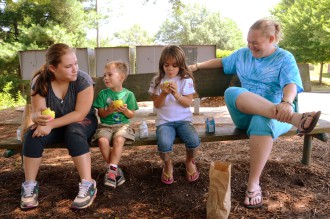
“Currently in its fourth year, the Summer Food Service Program grew in response to the risk of summer food insecurity experienced by children who are on the free and reduced meal program during the school year. “
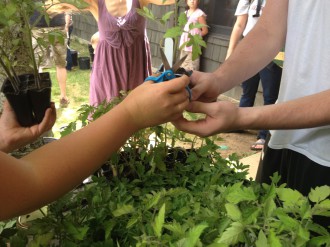
U Grow, a partnership between Bounty & Soul and Eat Smart Black Mountain, offers a hand-to-mouth approach to food security by encouraging families and individuals to grow their own food.
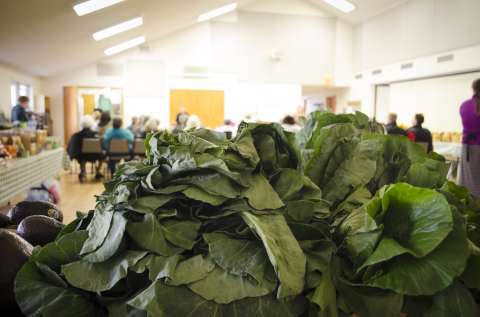
From the Get It! Guide: According to MANNA FoodBank’s 2014 Map the Meal Gap study, food insecurity affects 15.3 percent of Western North Carolina. But several local efforts are looking to stop hunger in WNC, bringing the battle to the fields, the pantries, the neighborhoods and even city hall.
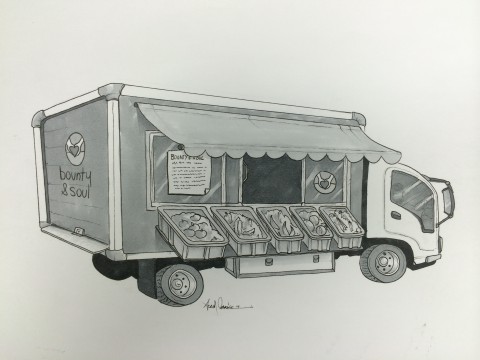
The organization has been running a pop-up food pantry and food security effort out of three locations in Black Mountain since 2012 but has been looking for a way to expand its reach since last spring.
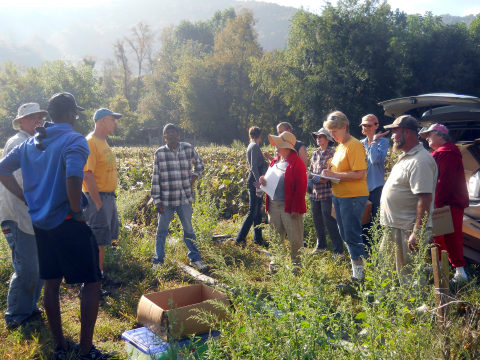
From the Get It! Guide: The Haywood County Gleaners currently work with 17 farms and farmers markets to gather leftover crops and donate them at 27 different sites, including senior centers and food pantries.
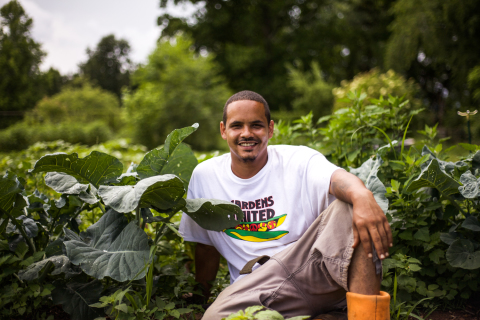
From the Get It! Guide: Sir Charles Gardner, a founding member of Gardens United, talks about food and building community through agriculture.
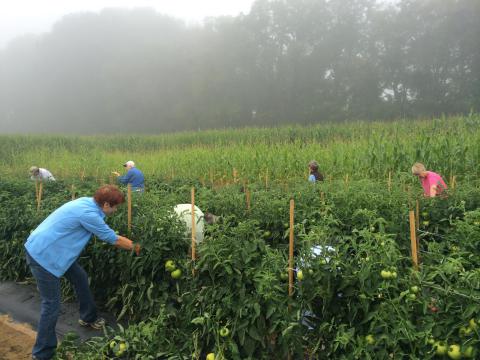
For many of us, when we think of preserved foods, we picture our grandparents carefully canning tomatoes from their garden, or the menu at a trendy restaurant featuring sauerkraut or pickled quail eggs. But imagine what food preservation means to someone experiencing food insecurity or to a donation grower faced with excess produce rotting in the field, and the image becomes something quite different.

The Eastern Band of the Cherokee are working to overcome problems plaguing their community with a literal grassroots solution — a community garden kit program designed to encourage physical activity, increase access to healthy foods and promote family and agricultural traditions.
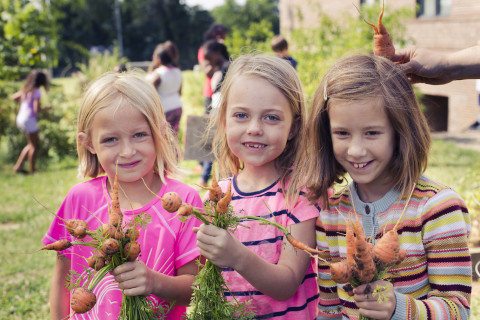
Incorporating garden-based education with an emphasis on healthy eating into the regular curriculum is the goal of two in-school programs run by FEAST, an extension of Slow Foods Asheville. Funds gathered by FEAST and school PTOs will support faculty positions in two elementary schools this academic year where a FEAST Garden and Cooking Coordinator will work to bring the schools’ gardens into the classroom.
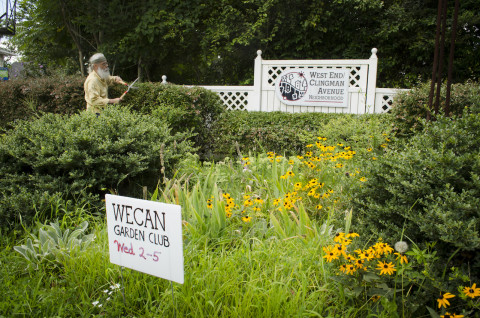
Many gardens in Asheville rest on public property that was once overgrown and unused. These spaces have been transformed but the methods that brought the transformation sometimes differ. Some gardeners in Asheville have taken their spots through guerrilla gardening. In some ways it’s comparable to being a graffiti artist or even a squatter, but some say it’s preferable to jumping through the hoops of bureaucracy.
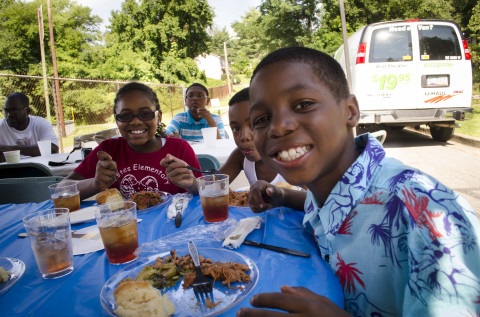
The Shiloh community celebrated their annual community garden potluck and summer celebration on Saturday, July 27. This year’s gathering was of particular significance to the community, as it marked the dedication of the garden’s new amphitheatre and outdoor kitchen.
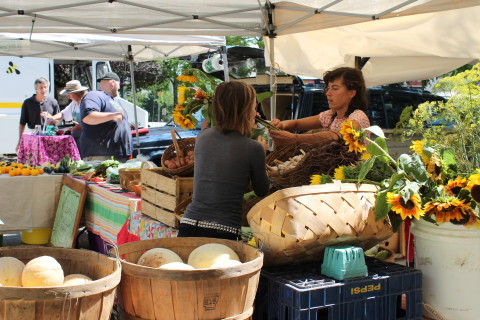
In 1790, 90 percent of Americans were farmers. Today that figure boils down to less than 1 percent. The change is particularly noticeable in the South, which up until the 1950s, was a largely agrarian society. Now, some are calling for a rebuilding and supporting of a locally-focused food system — which used to be prevalent in Appalachia.
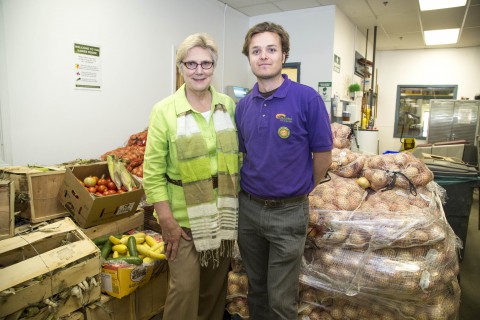
Newly released data pulled from Feeding America’s 2012 Map the Meal Gap study shows a 2 percent increase in food insecurity in Western North Carolina. In that year, the study found, 15.3 percent of the region’s people lacked consistent access to enough food to meet their nutritional needs, up from 14.9 percent in 2011.
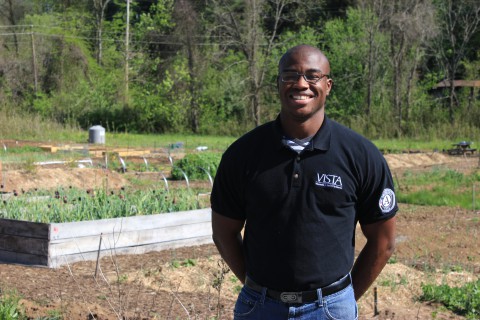
In our new section, area growers discuss their gardens and growing projects. This week Willie Jones, an AmeriCorps VISTA with Western Carolina University’s Center for Service Learning and Food Security Partnership and founder of the Jackson County Glean Team, tells us about gleaning and how it can be used to combat food insecurity.
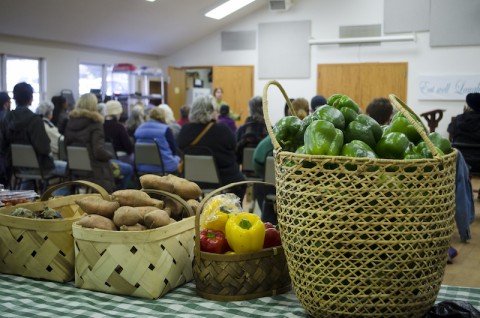
In order to help strengthen the networks between growers and food assistance and resource centers, Xpress is working to map food pantries, share markets, community gardens that offer free produce, welcome tables and any other community resources that increase access to healthy foods.
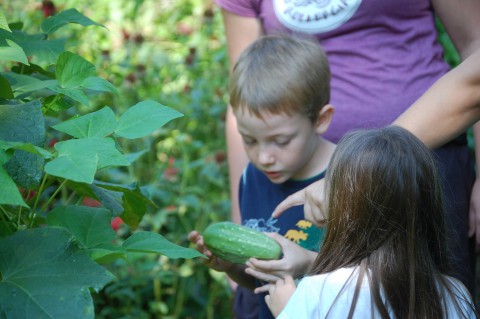
The WNC area is rich with community gardens of all sorts — from CSAs to donation gardens that grow for area food banks to education gardens for public schools. Xpress is working to compile a database of community gardens to help interested neighbors find and support these community efforts.
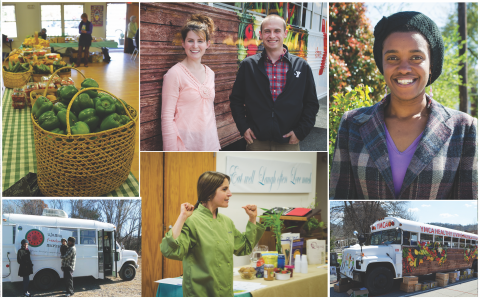
The USDA has identified several areas in WNC, and Asheville, as places without access to healthy, affordable food. But three different mobile food markets are aiming to launch this year — reducing the distance between healthy foods and communities in need.
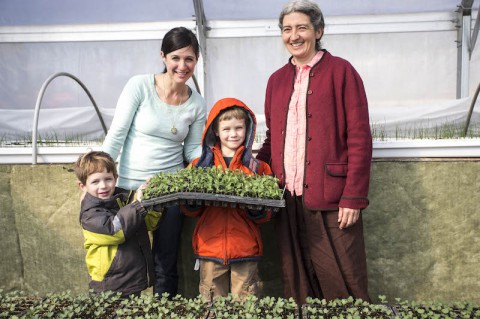
A celebration of locally grown food and neighborhood relationships, the Oakley Farmers Market and the adjacent Oakley Community Garden are giving a much-needed boost to a predominantly low-wealth community that the U.S. Department of Agriculture considers a food desert. But what brought them all together was as simple as a sign.